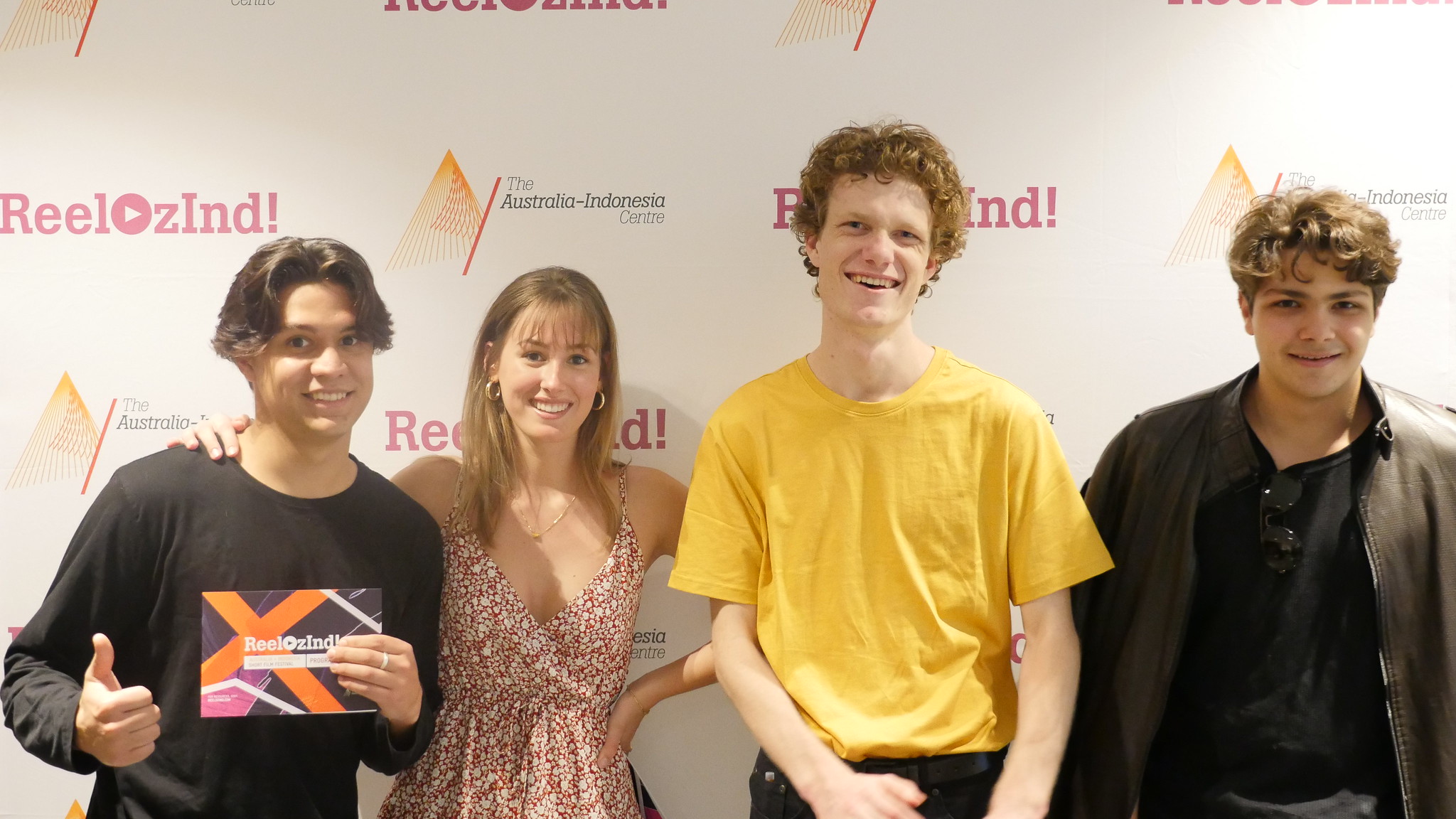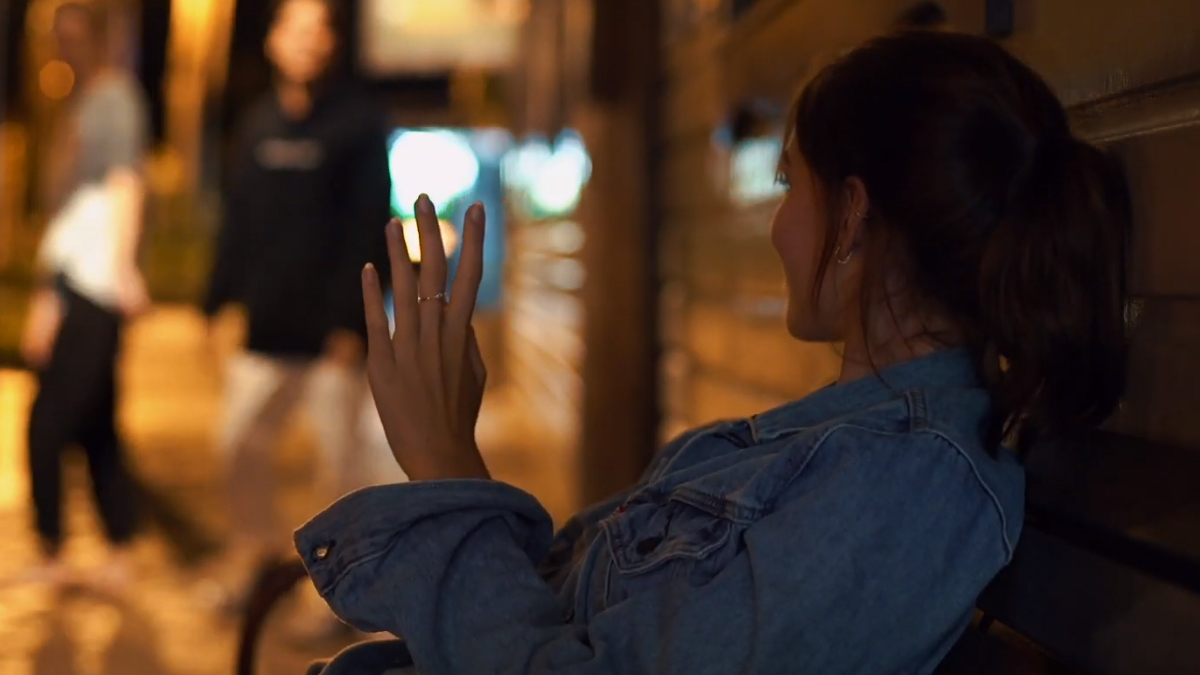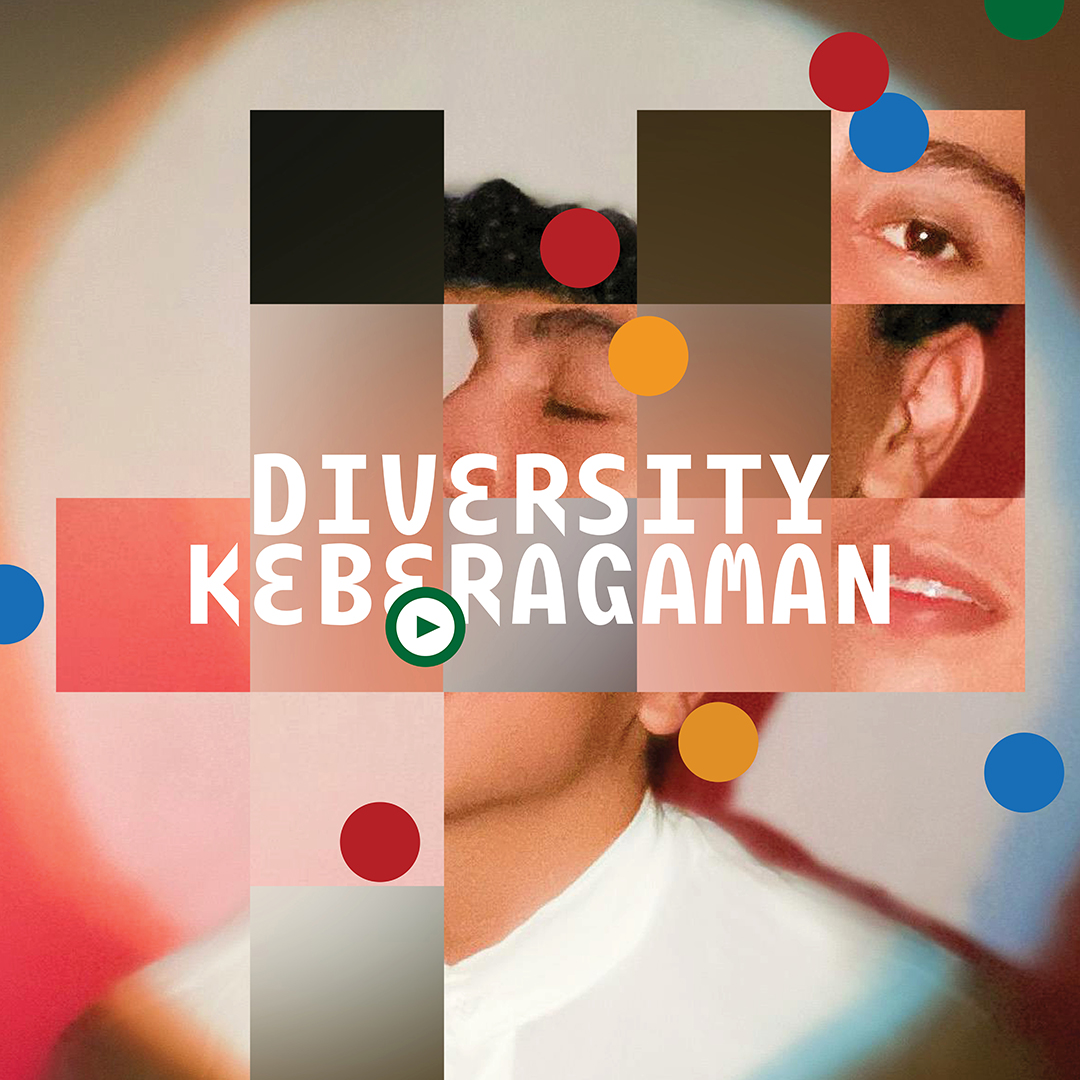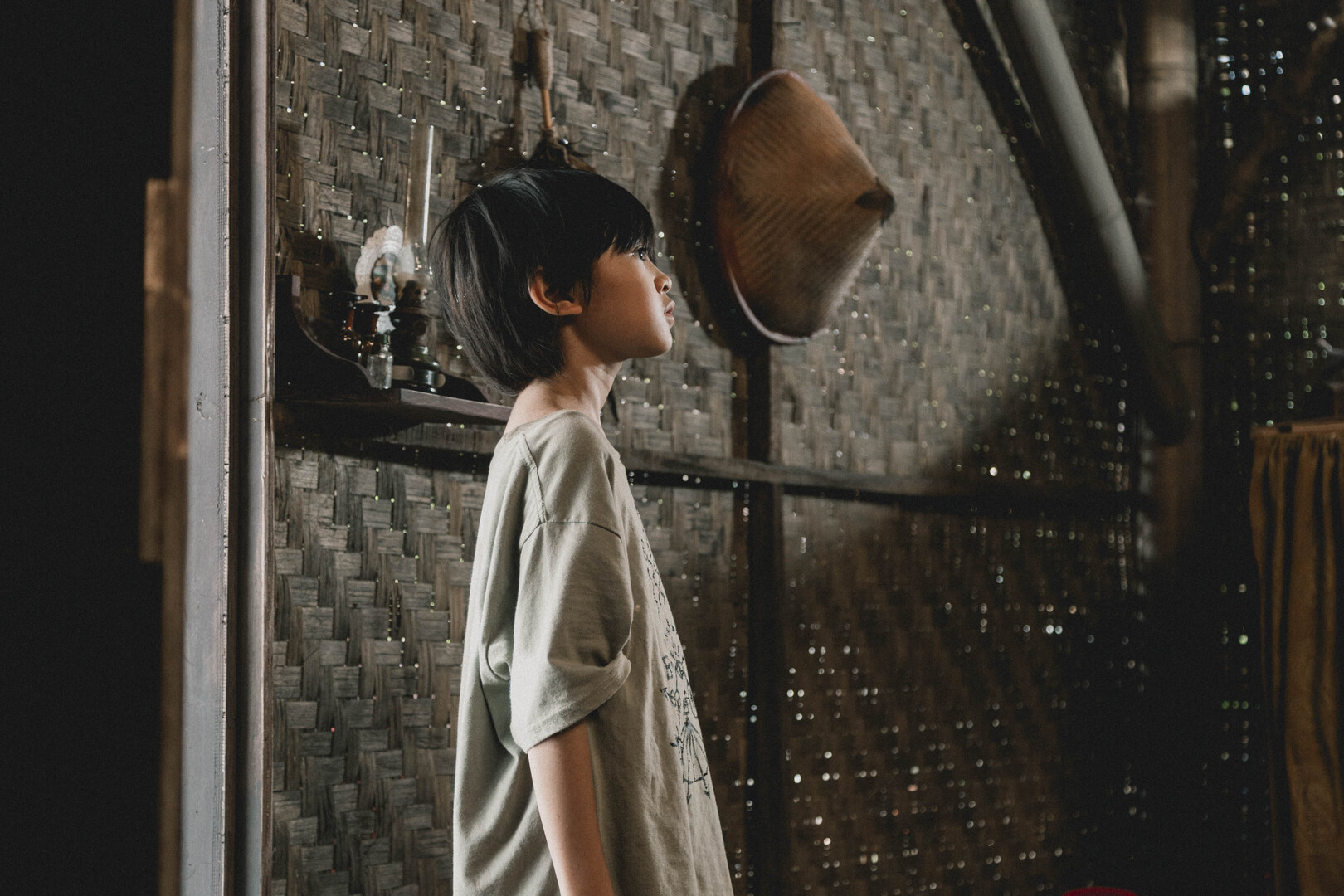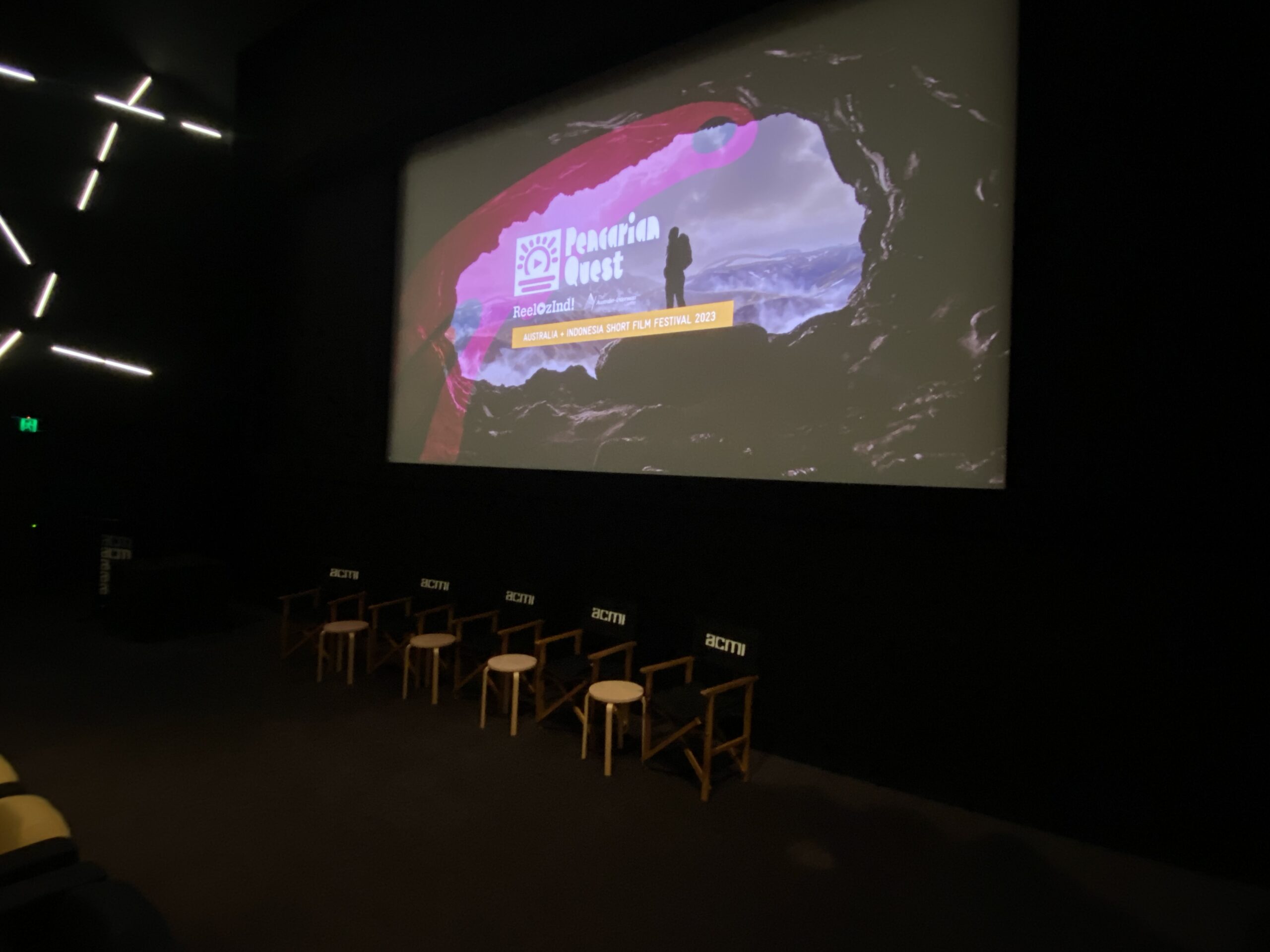Jahvis Loveday (above, far left) is a co-director, co-writer and co-producer of Home, the film that earned him the honour of Best Young Filmmaker at the ReelOzInd! 2019 short film festival. We sat down with Loveday to discuss what the notion of home means to him alongside a look into his filmmaking process.
How do you think Home fits into the festival’s theme of change?
I believe this film fits the theme of change perfectly, because our character is facing change in that exact moment. I made this film right before I was leaving home to come and live in Melbourne and follow my passion for film and storytelling. I could feel in myself a huge change coming, I knew my life is going to be very different, and I am going to have to adapt to a whole new form of society and growing up. When I saw that the ReelOzInd festival’s theme was change, I knew I had to share my stories with you all!
Is Home your story, or something more?
Home is everyone’s story, everyone has a home and a people. At some point in all our lives, we come to the crossroad, and we have to choose to stay or go. This is the first time I have ever been away from my home, my family and my country I grew up in. Through my years of moving all across the country, going to nine different schools by year 10, I came to realise that home is not a place, but a people.
Home clocks in at just under two and a half minutes. How long did it take to produce?
All up, Home took one day to create. My [high school] teacher Endre told us that we should make a film for The Really Short Film Festival, and I said, “of course! When is it due?”
He said, “tomorrow morning.”
So I finished up at my work, a fruit and vegetable store, met up with my friend Joy and went for a drive to think of some ideas.
What was the process involved?
We both really felt it necessary to explore the theme of home and what it meant to us. After she dropped me home, I went and wrote out an idea about how the things we think we hate about home truly become the things we will miss the most when they aren’t there in front of us. Later that day we met up and filmed some cool shots of Alysse on a motorbike, however we didn’t end up putting it in the final cut because the cuts between day and night were too jarring.
We met up later that night and made a small list of things we could film. We really just went from town to town filming whatever looked pretty and matched to the story and voice over. After filming until about 12am we finally went back to Joy’s house and laid around while she chucked an edit together [so] we would all watch it and point out what worked and what didn’t. We eventually finished by morning and submitted it to the festival. It then went on to win 1st prize which was such an amazing feeling, something I will never forget.
What are the strengths and weaknesses of such a tight running time?
One of the biggest strengths about having a short run time is audience engagement. As we move more and more in to our technology-based future, our attention spans are becoming shorter and shorter. By making a short high-quality film, I knew that the audience could handle the whole thing with ease.
One of the biggest weaknesses with a short run time, is you have to squeeze a huge theme, tone, genre and style in to two minutes. There is no room for time wasting, everything has to be cohesive and flow like water.
Overall, I am really happy we chose to keep it at two minutes, it is a really achievable goal and I believe if you want to make a short film, two minutes is a perfect place to start!
Do you think you’d ever revisit Home and expand upon the ideas presented within?
Now that I have been away from home for about 10 months now, I do want to go back and make another short film based around that theme. I want to show my new home, this city and everything in it.
I would love to follow a similar structure where I show what can be, sometimes challenging in a new place, but end up being the most exciting parts about being here. Now that I have a second home, I realise more and more that home is something we create around us. The feeling may not always come to us straight away, but if you keep on moving forward, eventually you come to a better place.
I can’t help but think of the phrase, “You can’t go home again” – do you think that’s the case?
At first, I thought to myself, “I am here now, I can’t turn back.” However, after pushing through — finding a house, friends, and starting school — I realise I can always rely on my home and my family to be there for me if I fall.
Nothing in this world can compare to the bonds we have to our families and homes, it is an unbreakable force that can withstand truly anything. Since moving I have been home so many times, and I love it! It is so nice to go and relax, to slow down, surf, skate, be with my people and see home for what it truly is. As much as I think everyone should leave home, I believe everyone should never abandon it.
Home and family heal us; [home] fills me back up to tackle another trimester of school! I love going back to my old school and saying hello to all my teachers, friends and everyone who built me up to who I am today.
You’re in Melbourne studying film – how’s that going? Do festivals like ReelOzInd help in your studies?
Studying has been one of the best decisions of my life. It has never felt like I am doing something I don’t want to do, because I am constantly learning more about my passion. Some people say you shouldn’t study or it’s too expensive, and I can understand that. However, money is a weird concept, it belongs to no one. Whatever amount of money you have in your wallet doesn’t belong to you — it is your turn to spend it, and it always will come back around. I don’t care how much the cost is to follow my dreams and passion, if it is making me happy, then I know in my heart I am doing the right thing.
Festivals like ReelOzInd are one of the main motivators for me to excel in my studies. It allows me to be confident in my discussion at school, because I know in my mind that if I can be a part of such an awesome festival, then I have the drive and talent to do well at school. We do a lot of pitching at school, so going up on stage at the ReelOzInd festival and doing a Q&A really helped me in my public speaking and communication skills. I am forever grateful that ReelOzInd selected my film as best youth film, it is such an honour and I am excited to be a part of this festival for as long as I can!
Watch all of ReelOzInd! 2019’s shortlisted films and choose your favourite movie
What drew you to the ReelOzInd festival, and to submit an entry?
When I saw that the ReelOzInd festival was a festival that connects Australian and Indonesian cinema, I knew I wanted to be a part of it! Even if my film couldn’t make it in I knew I wanted to go experience it anyway.
So much of today’s cinema is dominated by Hollywood — especially if you live in Australia or America, or really anywhere in the world. I really wanted to get out there and explore all the different cultures across the world, especially since Indonesia and Australia are practically neighbours.
I feel it is necessary we all experience each other’s cultures, and understand different expressions of art through our stories. When I saw that the theme was change, I knew I had to share my story, because it truly is based around the biggest change every human goes through: becoming an adult. All though I do not believe I am an adult — and most likely never will be — it is still a huge change in our perceptions of society.
What are your ultimate goals as a filmmaker?
My biggest goal as a filmmaker is really just to make my family proud. I love them with all the bones in my body and it makes my life so full when I see that they are happy to see me where I am today.
I want to be able to create memories for my future self to look back on in nostalgia. As I move forward in this world of storytelling, my goals are to tell stories that don’t end when the credits role. I want my stories to live and breathe through our society and in our future. I think it is really important we all tell our stories, because each of them can be a lesson for another. It is ok if your stories are similar to someone else’s, as long as we find new and inventive ways to tell these lessons, they will never die.
Also, another goal is to obviously work with Taika Waititi — my life will then be complete, mostly.
For more from Jahvis, please visit him on YouTube and Instagram.


